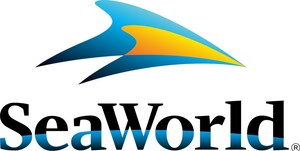SeaWorld Publishes Groundbreaking Killer Whale Research, Creating Health Benchmarks for Wild Populations
Spanning more than two decades and thousands of samples, SeaWorld's study aims to improve diagnoses for threatened populations
SAN DIEGO, April 23, 2019 /PRNewswire/ -- Veterinarians at SeaWorld have published a new, foundational study in Veterinary Clinical Pathology that establishes first-ever standards for diagnosing clinically healthy killer whales in the same way primary doctor's asses a human patient's weight, blood pressure and overall health. Informed by 22 years of health exams and 2,823 blood samples collected from more than 30 killer whales at SeaWorld's Orlando, San Antonio and San Diego parks, this groundbreaking study gives scientists one more tool in their fight against rapidly declining global populations of wild killer whales.
These critical findings arrive amid heightened urgency in the scientific community to find ways to conserve this threatened species increasingly affected by exposure to toxic substances, limited food supply and ocean pollution. Southern Resident killer whales in particular are an endangered population of killer whales ranging from central California to southeast Alaska. Since 2005, this population has declined more than 10 percent to now just 75 individuals, with three deaths in the pod last year alone.
"We know that the southern resident killer whale population suffers from poor health, though we still don't know all the causes," said Dr. Joe Gaydos, science director of SeaDoc Society – a Washington state-based research organization aimed at protecting marine wildlife in the Salish Sea. "SeaWorld's extensive research allows the veterinary community to take a monumental leap forward in developing effective ways to assess and treat ailing members of this population."
The study is based on the determination of normal physiological variations of clinically healthy killer whales in different stages of development and aging. The study maps a spectrum of physiological variations for healthy whales and paves the way for better diagnoses of physiologic, reproductive and pathologic conditions of wild orcas.
Access to the clinically healthy population of killer whales in SeaWorld's care provides researchers unique and unparalleled data for diagnosing and understanding killer whale health in the wild. Data collection of this scale is impossible to replicate in the wild, given the need for large sample sizes and routine access to the same whales. At SeaWorld, killer whales regularly participate in their own care. Among other health behaviors, whales are trained to present the underside of their tail – or fluke – to a veterinary professional who is then able to draw blood.
"This research offers a template of normal values from which blood results from any killer whale can be compared," said Dr. Todd Robeck, SeaWorld Vice President of Conservation Research and one of the study's lead authors. "Thanks to our unprecedented access to these animals and expertise in caring for them scientists and animal welfare experts across the globe are now better equipped to determine the wellbeing of wild killer whales."
As one of North America's only zoological facilities with access to killer whales, SeaWorld is committed to continue its contributions to foundational research and forwarding conservation efforts worldwide.
"Aside from SeaWorld, there is no other organization out there with access to 20 years of data and samples of this quality," said Dr. Robeck. "This study is as robust as it gets, and our work will provide a critical measuring tool for determining how and when animal health specialists can assist a whale in the wild."
About SeaWorld Parks & Entertainment, Inc.
SeaWorld Parks & Entertainment™ is a leading theme park and entertainment company providing experiences that matter and inspiring guests to protect animals and the wild wonders of our world. The company is one of the world's foremost zoological organizations and a global leader in animal welfare, behavioral training, husbandry and veterinary care. The company collectively cares for what it believes is one of the largest zoological collections in the world and has helped lead advances in the care of animals. The company also rescues and rehabilitates marine and terrestrial animals that are ill, injured, orphaned or abandoned, with the goal of returning them to the wild. The SeaWorld® rescue team has helped more than 34,000 animals in need over the last 50 years.
SOURCE SeaWorld Entertainment, Inc.

Related Links
WANT YOUR COMPANY'S NEWS FEATURED ON PRNEWSWIRE.COM?
Newsrooms &
Influencers
Digital Media
Outlets
Journalists
Opted In





Share this article